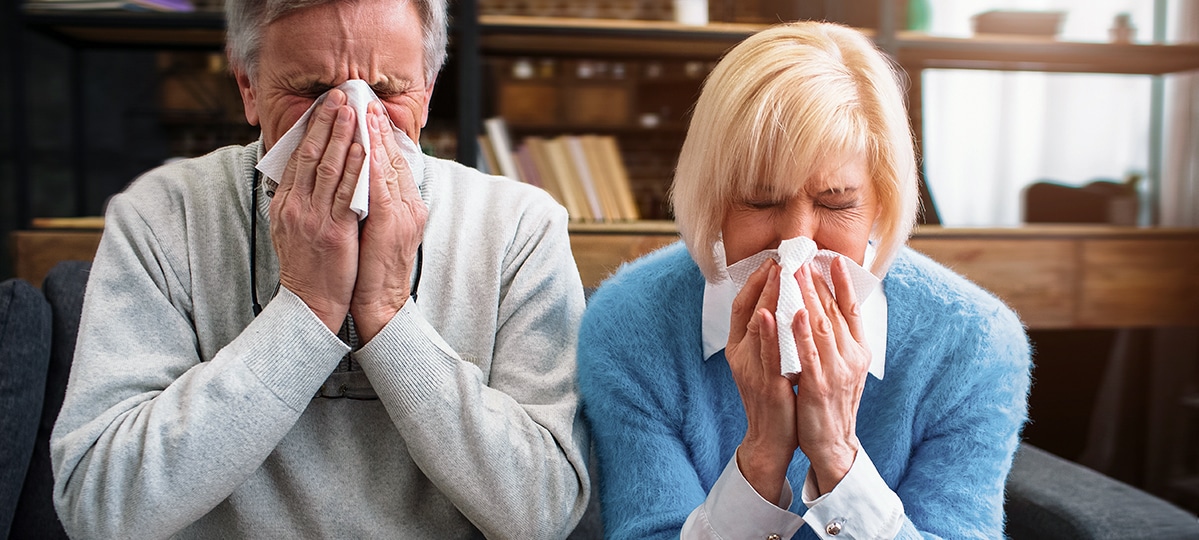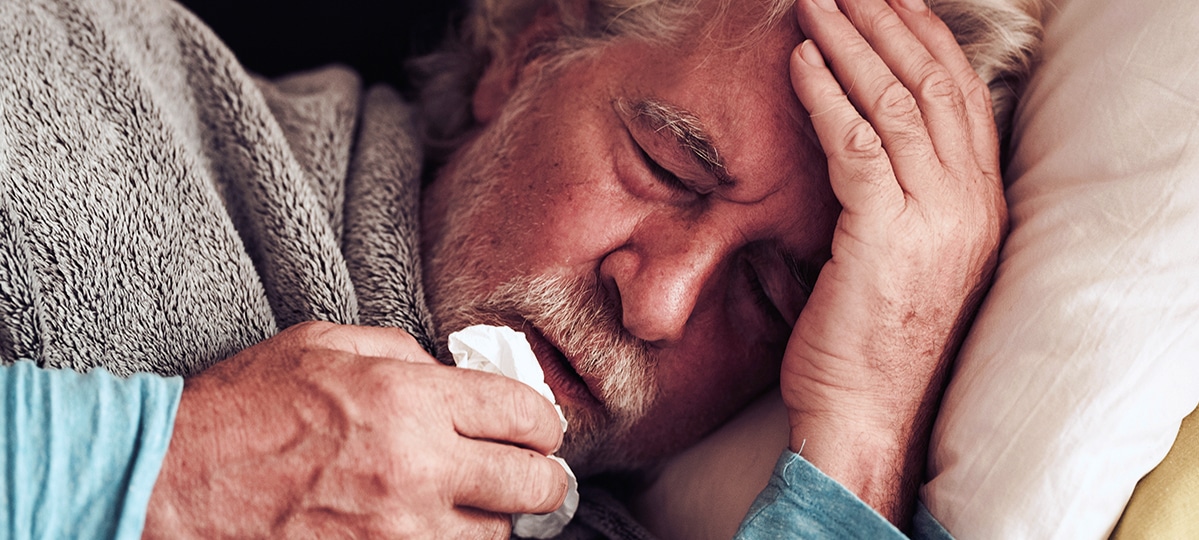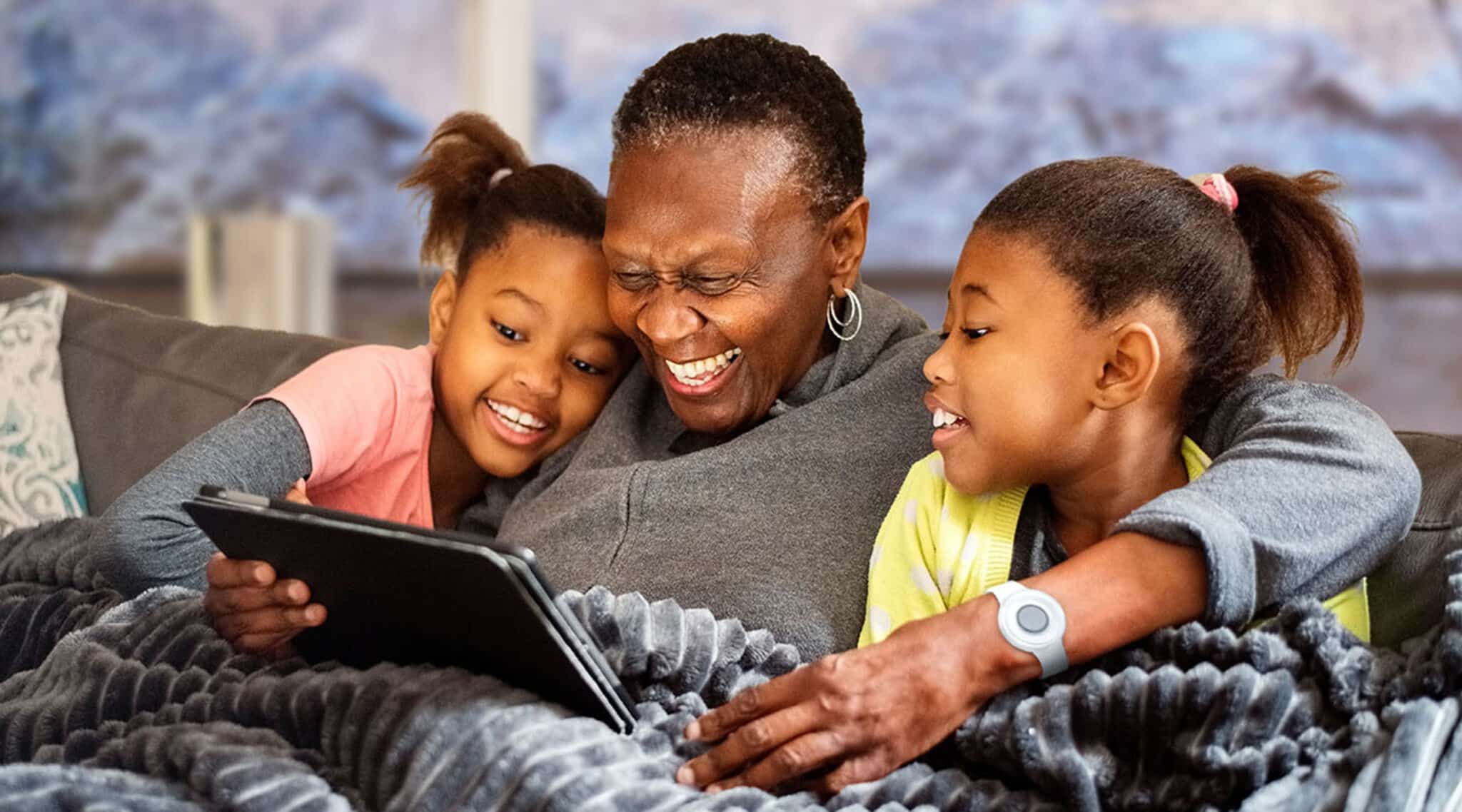Allergies are not a problem that we have or don’t have. They can develop over time and get worse as we age. Allergies can be more difficult to cope with as a senior, and even lead to more serious illnesses.
The effects of allergies can also cause painful reactions that are difficult to cope with as a senior. Sneezing, coughing, swelling, and respiratory concerns can all cause discomfort and even worse, for seniors.
Many people develop allergies over the years. Things that never used to bother you are now a concern. Because the symptoms can vary, allergies can also be diagnosed as something else, which can also be concerning.
Symptoms
Coughing
Coughing, along with sneezing and runny nose can be symptoms of several health concerns. Even coughing due to allergies can cause problems and disrupt your normal daily routine.
Chronic coughing can keep you awake at night. Without proper sleep, you can’t function properly and your body doesn’t have time to heal and rest. The result can also lead to crankiness and headaches.
Sneezing
Constantly sneezing is extremely frustrating. It can cause your eyes and nose to water, and you may even lose control over your bladder functions. It’s embarrassing and can lead to bigger issues.
If allergies are causing someone to sneeze who already lives with respiratory issues, it can be painful and chronic. It can lead to headaches, dehydration, and even nose bleeds.
Itching
Itching can come in many forms. In particles, on our skin. It can be from our laundry detergent, pollen, various clothes or materials, and even the foods we eat. As our skin ages, it gets dry anyhow.
Our skin as a senior can be much thinner, as well. Itching can cause a worse rash, and pain, and even break the skin and cause bruising and bleeding. This constant itching can also lead to infections.
There is often the sensation of itchy eyes, as well. This can be problematic, as rubbing your eyes too much can scratch the surface and cause more damage, infection, and swelling.
Rash or Hives
Very often, a rash or hives may be painful or itchy. Rubbing them can cause soreness, bleeding, and infection. These may make it impossible to sleep, walk, or even wear clothing.
Hives can become infected and burst, which can be even more painful. Symptoms from allergies coupled with other skin or respiratory issues can make a small seasonal allergy a real nightmare for a senior.
Care and Treatment
As a loved one or caregiver, the allergies must be diagnosed. You need to know what you are coping with, so you know how to treat them. When allergy symptoms mimic other issues, it can be dangerous.
Various antihistamines can be taken orally, nasal sprays, or creams that can help ease the itching, swelling, and pain of rashes or hives. Talk to your medical professional before administering any medication, even over the counter.
Keep the house clear of dust and pollen. Leave windows closed during seasonal allergy time and consider wearing a mask or face covering to avoid breathing it all in.
Avoid foods that may cause allergic reactions or otherwise bad results until you can positively rule them out. It’s important to read labels to know if there are even traces of foods that may cause a reaction in the products.
Use milder soaps and detergents. These products designed for babies are often the best way to go. Stick to wearing natural fibers to avoid allergic reactions from synthetics.
Check all medications to make sure they are not causing allergic reactions. There may be an issue with the mixing of different medications that are causing upset or allergic symptoms.
Consider a Medical Alert System
If you are worried about a loved one who suffers from allergies, you may want to consider investing in a medical alert system. This will allow them immediate response from professional medical personnel within minutes.
Trained response specialists will be able to respond and attend to any issue they may be having, medical or not. If a loved one presses their medical alert button, you or a family member can be contacted so you will always know what is happening.




